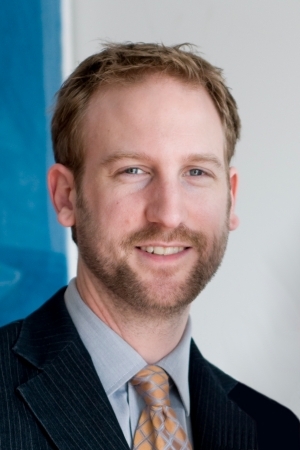ARC success for Deakin
Research news
Deakin University has achieved an excellent result in the latest round of Australian Research Council (ARC) Scheme Awards, announced today by the Minister for Education and Training, Senator Simon Birmingham.
A total of $5,660,084 million has been awarded to Deakin researchers - making the round particularly successful. The university received nine ARC Discovery Projects, five ARC Discovery Early Career Awards (DECRAs) and an ARC Linkage Infrastructure, Equipment and Facilities (LIEF) award.
Deakin’s Deputy Vice-Chancellor (Research), Professor Lee Astheimer, said that she was delighted for the successful researchers.
“I congratulate all of the recipients on this recognition,” Professor Astheimer said. “The awards are a much-deserved acknowledgement of the effort and collaboration of these researchers and will fund important research that promises to make a difference to our world in the years to come.
"I am thrilled to see that three of the five DECRA recipients either hold or once held Alfred Deakin Postdoctoral Research Fellowships. This is further validation of the success of this scheme in identifying the next generation of innovative, high calibre researchers."
The Deakin-led Discovery Projects:
- Australian Laureate Fellow Professor Maria Forsyth, Institute for Frontier Materials.
“Advanced Na battery technology; key to transforming society's energy use.” This project aims to advance energy storage technology, based on low cost and sustainable sodium chemistry. Sodium batteries could improve a broad range of technologies, including electric vehicles and renewable energy, where large, expensive batteries are needed.
- Associate Professor Nicole Stanford, Institute for Frontier Materials.
"Cluster hardening of metastable steel alloys produced by thin strip casting.” The goal of this project is to generate sufficient knowledge to apply strip casting to a wider range of steel grades. Direct strip casting is an emerging green technology that reduces the energy required to process liquid steel into thin sheet product by up to 90 per cent.
- Associate Professor Tania De Koning-Ward, School of Medicine, (MMR).
“Investigating why malaria parasites have a unique translocon.” This project aims to explore the mechanism that enables malaria parasites to thrive in their host cells, and improve understanding of the conditions required for parasite survival during the initial stages of a host infection.
- Dr Gery Karantzas, School of Psychology.
“Caring for older parents: Investigating the role of attachment security.” The project aims to investigate the relationship between child–parent bonds and care for older parents, with the aim of improving the sustainability of aged care in the community.
- Associate Professor Paul Francis, School of Life and Environmental Sciences (CCB).
“Multi-Colour Electrogenerated Chemiluminescence.” This project will explore a new approach to chemical detection, in which molecules that emit different coloured light can be selectively switched on or off via electrode. This may provide new capabilities in rapid screening for disease biomarkers, environmental pollutants and bioterrorism agents, using simple, low-cost, portable instrumentation.
- Professor Craig Olsson, School of Psychology (SEED).
“Intergenerational Prediction of Social and Early Emotional Development.” This project aims to investigate multi-generational influences on child psychosocial development. It will take advantage of one of Australia’s oldest longitudinal studies of social and emotional development – the Australian Temperament Project – to inform interventions and psychosocial resources that promote wellbeing within and across generations.
- Professor Christine Halse, School of Education (CREFI).
“International students in secondary schools.” This longitudinal project aims to analyse international secondary students’ transnational connectedness, through examining how and why student relationships change across Years 10–12, leading to improved support - and improved competitiveness of Australia’s international education sector.
- Associate Professor Dinh Phung, School of Information Technology (PRaDA).
“Nonparametric Machine Learning for Modern Data Analytics.” Modern data analytics tasks need to interpret and derive values from complex, growing data. This proposal aims to develop “next generation” machine learning methods to cope with the data deluge.
- Professor Christoph Antons, School of Law (ADI-CG).
“Building an intellectual property system: The Indonesian experience.” This project aims to provide an independent assessment of the development of the Indonesian intellectual property system over the past 30 years, thereby providing valuable information to Australian businesses and the government.
The five ARC Discovery Early Career Researcher Award (DECRA) recipients are:
- Dr Adrian Cameron, from Deakin Population Health, “Creating food environments that encourage healthy eating.”
- Dr Gary Sacks, from Deakin Population Health, “Food policies for population health: evidence, influence and accountability.”
- Dr Luhua Li, from the Institute for Frontier Materials, “Superior Adsorption Capability of Nanosheets for Surface Enhanced Raman.”
- Dr Ha Lien Phuong Tran, from the School of Medicine (MMR), “Smart aptamer-guided nanoexosome as a novel biotechnology platform.”
- Dr Jessica Walton, from the School of Humanities and Social Sciences, ADI-CG, “Navigating difference: Children's experiences in Australia and South Korea.”
The ARC Linkage Infrastructure, Equipment and Facilities (LIEF) award recipient is:
- Prof Ian Chen, from the Institute for Frontier Materials, led the successful bid, “Advanced Synthesis System for Two-Dimensional Nanomaterials.”
A number of other Deakin researchers will be involved as Chief Investigators in successful ARC Discovery Projects led by other universities. These include: Professor Anthony LaMontagne, Dr Allison Milner, Professor Brenton Doecke, Professor Marcel Klaassen; Dr Rebecca Lester; Associate Professor Andrew Singleton; Dr Anna Halafoff; Dr Lee Rollins, Dr Tiffany Shellam and Professor Martine Powell.
Deakin Chief Investigators in ARC 2016 LIEF projects led by other universities include: Professor Ian Chen, Professor Margaret (Leigh) Ackland, Associate Professor Abbas Kouzani, Professor Stephen Haswell, Dr Mazher Mohammed, Professor Svetha Venkatesh, Associate Professor Dinh Phung, Professor Bronwyn Fox, Professor Xungai Wang, Dr Luke O'Dell, Professor Maria Forsyth, Dr Damien Callahan and Professor Colin Barrow.
Share this story
 Associate Professor Paul Francis is set to lead an ARC Discovery Project that aims to improve chemical detection through chemiluminescence.
Associate Professor Paul Francis is set to lead an ARC Discovery Project that aims to improve chemical detection through chemiluminescence.
